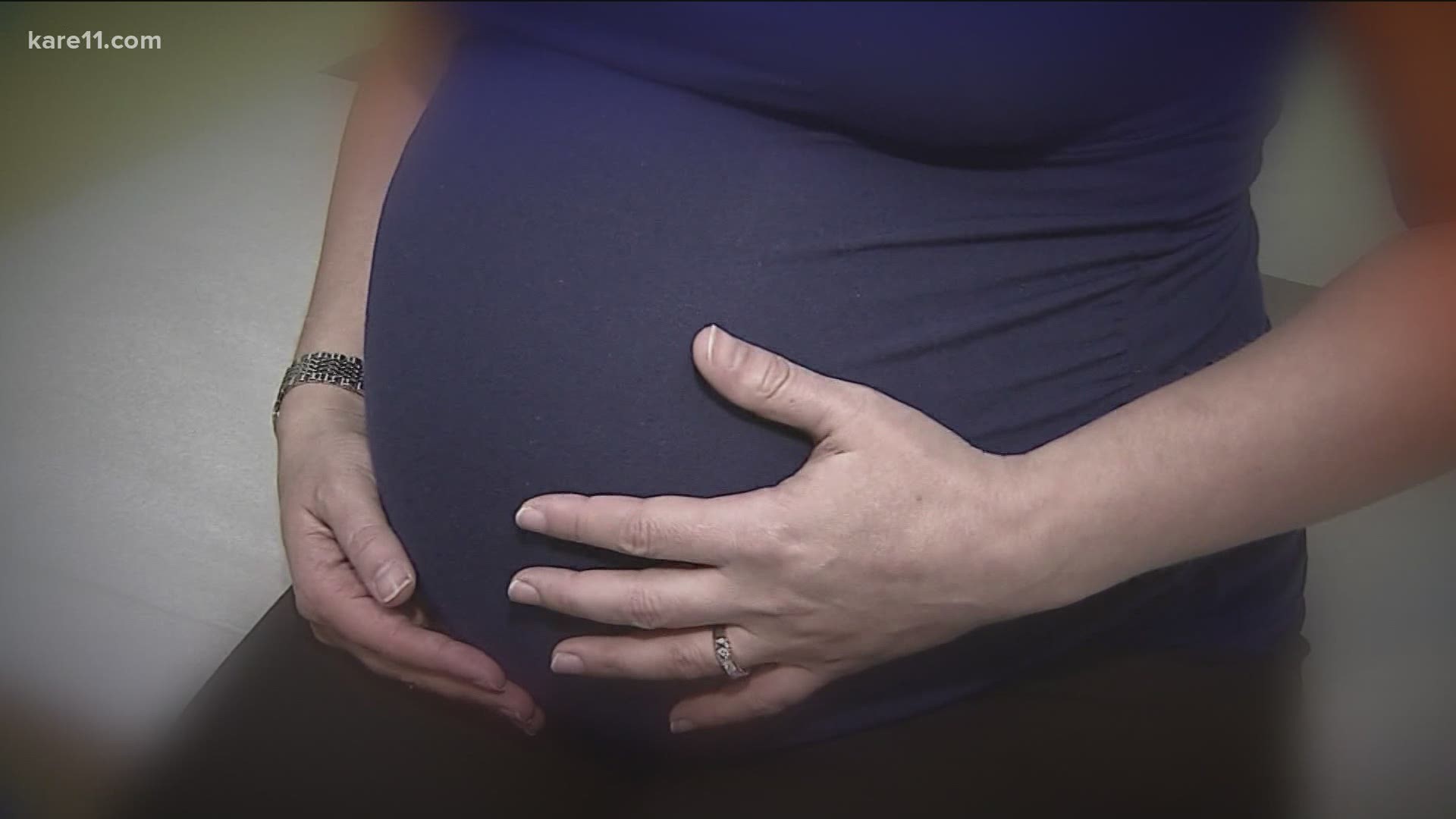MINNEAPOLIS — Turns out, there may not be a pandemic baby boom after all.
At this point, it's more of a baby bust, according to recent research from University of Maryland sociology professor Philip Cohen.
"It's still early if you think about the months since the pandemic began, but there's already evidence that birthrates have dipped," Cohen said. "They were lower than they were last year."
Cohen said he's not surprised because this is classic crisis human behavior.
"Whether it's pandemics like the 1918 flu, or wars, or recessions, birthrates always fall during a time of crisis," he explained. "In this case, we're seeing a decline in birthrates, we just don't know yet how big it will be or how long it will last."
For several of us who have thought the pandemic and spending time with significant others in increased time increments was going to lead to a plethora of pregnancies, Cohen explained that the scenario would only make sense if you solely looked at one variable.
"If you only think about one aspect of it, that is the amount of time couples spend together, that might lead to more births," he said. "But the things that lead against that are just much bigger."
For example, Cohen cited the lack of control, and the plethora of uncertainty everyone is facing as one of the biggest reasons couples may choose to not expand their family.
"Any time there's a lot of uncertainty, 'Where are we gonna be next year? Are we going to have jobs? Are we going to be safe? Are we going to be taking care of our elderly relatives?' Healthcare, housing, some evicted, losing jobs, family members sick, any source of uncertainty like that will increase the likelihood that people are going to back off from a long term decision," Cohen said.
Cohen added that unplanned pregnancies are down, too, because spontaneous circumstances are less likely to be created. Bars, restaurants, entertainment venues or anywhere else that likely led to meet-ups are closed or under strict capacity rules.
"People aren't just meeting as much as they were, people who already knew each other aren't advancing to the next level of the relationship as much," Cohen said. "People just aren't having sex as much."
So why is it a problem that there aren't that many babies than expected?
"Well, there are some people who just think that if the birthrate falls, it's trouble for society, we have less workers, we have less young people, social security burden increases," he said. "I'm not really too worried about those, I'm on the side where I think we can handle all that."
Plus, the pandemic is young and there's more data to gather about this baby bust in the next several years. Cohen also said that a rebound could be possible.
"For those people who are really planning, and intending to have children and they postponed it, or to get married or have relationships, there is likely to be some rebound," he said. "Usually what we see in other cases like the great recession, in 2009, there's some rebound, but not enough to get back to where we would have been, so there's some loss of births that never happen."
In Minnesota the latest data shows that there were 66,033 births in the state in 2019. Numbers have not been finalized for 2020 yet. According to the department of health, Minnesota sees under 70,000 births each year.

